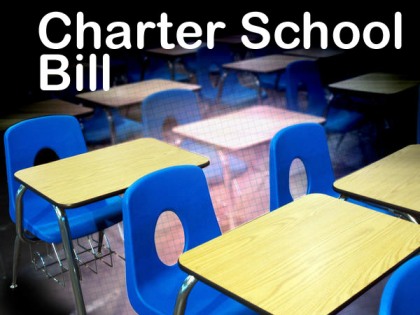
Charter Schools Deserve Freedom of Choice
The “Return Bill” wound unnecessarily interfere with a remarkable success story
Those who assume that government always knows best often seek to make decisions on behalf of individuals or organizations that are perfectly capable of making these decisions for themselves. Louisiana Representative Joseph Bouie’s “Return Bill”, HB166, is a prime example of this approach. The bill would return charter schools in New Orleans currently overseen by the Recovery School District to the Orleans Parish School Board. At first glance, this might seem reasonable. However, a closer look leads to the conclusion that this bill is entirely unnecessary.
In 2005, after Hurricane Katrina, the legislature passed Act 35, authoring the state Board of Elementary and Secondary Education (BESE) to take over the administration of a majority of New Orleans schools and convert them into charter schools. Today, more than 90% of children in New Orleans attend charter schools, whether they a part of the Recovery School District (RSD) or Orleans Parish School Board (OPSB).
The difference between 2005 and 2014 is like night and day and the New Orleans educational community can attest to that. While 62% of students in New Orleans attended failing schools in 2005, only 7% did in 2014. In fact, if you combined failing schools, D-rated schools, and C-rated schools in New Orleans in 2014, you would still have fewer students in attendance than those who attended failing schools in 2005.
Similarly, the performances of students in New Orleans have risen in just about every category. The number of black males graduating, the number of students eligible for TOPS merit scholarships, the number of students enrolling in college after they graduate, the average ACT score of students. All of these measurements for success have risen in New Orleans over the last decade or so. So why is Rep. Bouie trying to fix what is not broken and risk disrupting the progress that is being made?
It is worth noting that passing charter schools in the Recovery School District are free to return to the Orleans Parish School Board, if they choose. Choice is, of course, the crux of the entire matter. The issue is whether charter school leadership will make the decision on when or whether to return to the OPSB or whether the legislature in Baton Rouge will.
Charter schools are made up of administrators, teachers, students, and parents who know their situation better than any legislator could. Rep. Bouie’s bill is about taking the choice away from successful charter schools. If a charter school obtains a non-failing grade, we should allow them to continue to do what has made them successful. This is about students and their education rather than what districts can claim oversight of what schools.
HB166, the forced return bill, does not offer ways to improve innovation or oversight in Orleans Parish School Board, nor does it help to prepare the organization for a wave of charter schools returning to their district. In truth, if charter schools saw an organization that was in-tune with local needs and willing to innovate to achieve results, they would likely flock to the OPSB. Instead, they have seen the opportunity and steadfastly refused to return. They have reasons for that, and no doubt we will hear those reasons as this bill is debated in the legislature, but why would we want legislators to make the decision for them?
Thirty-six schools have been eligible to return to the OPSB district, but only one has done so. Perhaps that tells us something about how those charters view OPSB? By mandating the return of non-failing schools, this bill removes the incentives for Orleans Parish School Board to improve upon their oversight, infrastructure, and innovation needs in order to entice successful schools back to their district. If they do that, there will be no need for a forced-return bill like HB166. Maybe government does not know best in this situation. Maybe charter schools and their leaders are in a better position to know which organization will better support their mission of educating the children of New Orleans.





